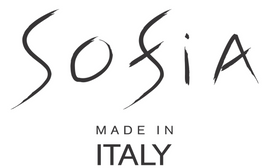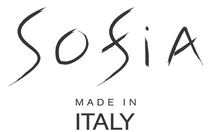The Culture Of Italian Dress
The culture of Italian dress is a fascinating tapestry woven with threads of tradition, innovation, and an unyielding commitment to style. Italy, often heralded as a global fashion icon, has a unique and rich sartorial heritage that extends beyond mere clothing. A culture mirrors the country's artistic legacy, historical significance, and a profound appreciation for elegance.

At the heart of Italian dress, culture lies a deep connection to the country's history. Italy, with its ancient civilizations and Renaissance grandeur, has bequeathed a legacy that transcends time. This historical resonance is palpable in the designs and motifs that often find their way into contemporary fashion. From the regal influence of Roman drapery to the intricate detailing reminiscent of Renaissance art, Italian dress culture pays homage to the country's illustrious past, creating a sense of continuity between eras.

Craftsmanship is a cornerstone of Italian fashion, and it is deeply ingrained in the cultural fabric. Italy boasts a lineage of skilled artisans, whose meticulous workmanship elevates clothing to an art form. From the bustling ateliers of Milan to the workshops tucked away in narrow Florentine streets, Italian artisanship is synonymous with quality. The emphasis on artisanal skill reflects a commitment to producing garments that are not only fashionable but also enduring – a testament to the timeless allure of Italian fashion.

Italian dress culture is not just about what one wears but how it’sworn. The concept of sprezzatura, an artful nonchalance, is a distinctive feature. Italians have mastered the art of appearing effortlessly stylish, blending different elements with seemingly casual ease. Sprezzatura rejects the idea of rigid fashion norms, encouraging a personalized and creative approach to dressing. It is an attitude that values individuality and self-expression, contributing to the distinctive flair associated with Italian style.

Family and community are integral to Italian culture, and this reflected in the significance placed on dressing well for special occasions. Family gatherings, weddings, and festivities become opportunities to display one's sartorial prowess. The passing down of clothing through generations creates a sense of continuity, linking the present to the past. Italian dress culture, in this context, becomes a shared experience that strengthens familial and communal bonds.

The regional diversity of Italy also plays a pivotal role in shaping the country's dress culture. Each region boasts its own unique style, influenced by geography, climate, and cultural history. The tailored sophistication of northern cities like Milan contrasts with the relaxed elegance of the Amalfi Coast. This diversity is a testament to the versatility and adaptability of Italian fashion, highlighting a dynamic range of styles that cater to different tastes and preferences.

In the contemporary fashion landscape, Italy maintains its status as a trendsetter and a global influencer. Milan Fashion Week stands as a testament to the country's ongoing commitment to innovation and creativity. Italian designers continuously push boundaries, blending tradition with modernity to create avant-garde pieces that capture the essence of the ever-evolving fashion world.

In essence, the culture of Italian dress is a celebration of heritage, artistry, and individuality. It’s a living testament to the country's past, a canvas upon which history and innovation coalesce to create a style that is both timeless and relevant. From the cobbled streets of Rome to the catwalks of Milan, Italian dress culture remains a captivating journey through the intersection of tradition and contemporary expression.






